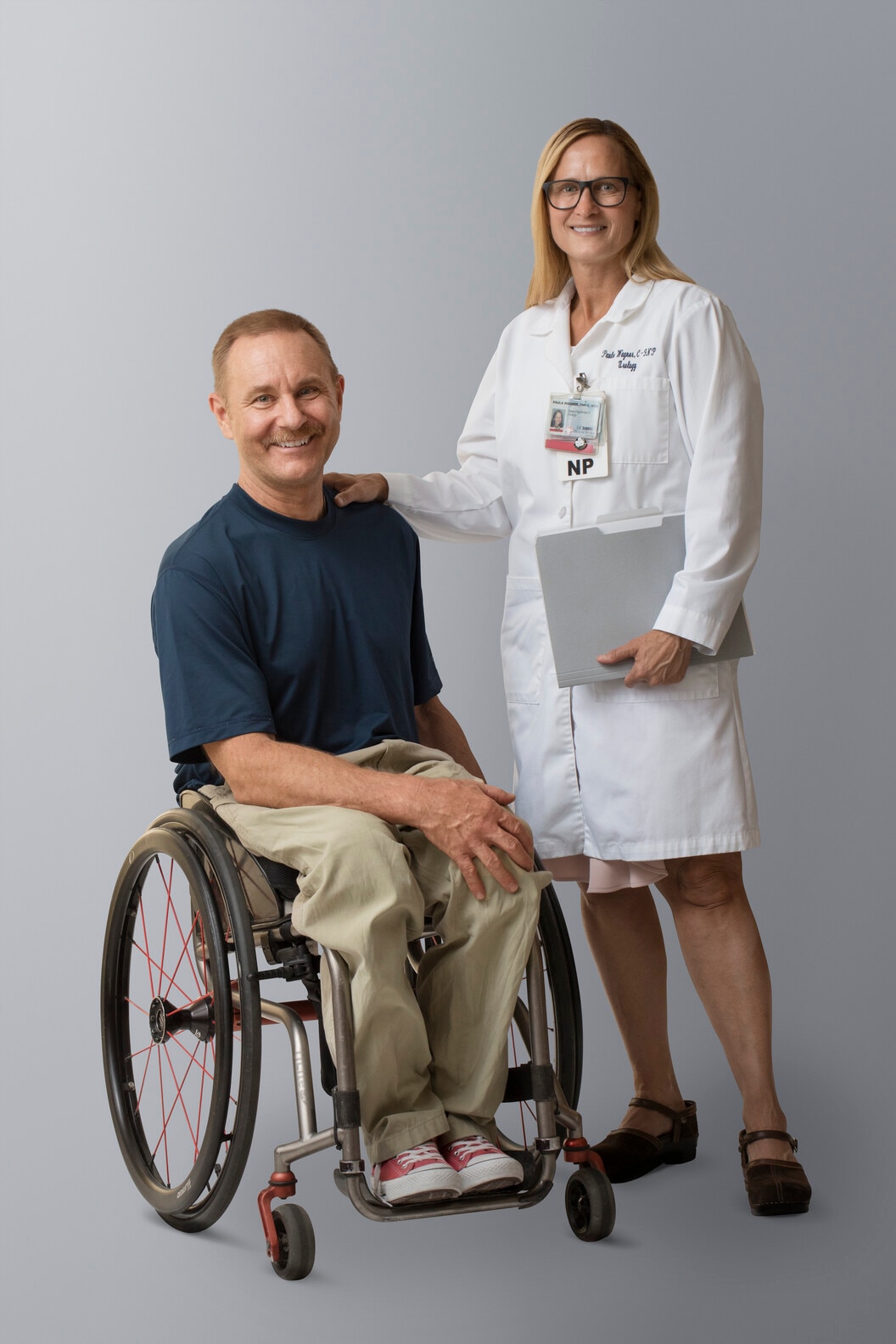Get full access with a free account
Benefits of the Coloplast® Professional Educational platform
- Get full access to all educational content, events and resources
- Track your progress
- Share content with your collegues
- Share supporting material with your patient

Neurogenic Bowel Dysfunction
Gastrointestinal symptoms, most often constipation and faecal incontinence, can arise due to lesions or diseases of the central nervous system. These symptoms affect up to 80% of patients with spinal cord injury (SCI), multiple sclerosis (MS), and spina bifida (SB).1

Spinal Cord Injury
Depending on the level of spinal cord injury (SCI), patients experience a change in bowel motility and anal sphincter control. Injury above the conus medullaris (upper motor neuron) results in hyperreflexic bowel and a tight anal sphincter, which causes constipation and faecal retention. Stool evacuation is induced by reflex activity in the rectum. Injury at the conus medullaris and cauda equina (lower motor neuron) results in areflexic bowel and loss of peristaltic control, resulting in prolonged stool transit particularly in the rectosigmoid region. Furthermore, loss of control over the external anal sphincter can result in faecal incontinence. Completeness of the injury also impacts bowel function. Patients with incomplete SCI may retain sensation of rectal fullness and the ability to evacuate bowels.2

Multiple Sclerosis
Extrinsic neurological control of the colon and anal sphincter is disrupted in multiple sclerosis (MS). Emotional and behavioral disturbances may alter autonomic control of bowel function and influence toilet habits. Interruption of afferent sensory or efferent motor pathways can affect regulation of bowel function. Finally, systemic factors and medications used for MS can affect visceral and pelvic floor function.3

Spina Bifida
A congenital malformation that results from failed closure of the neural tube during embryonic development of the spinal cord. Individuals with spina bifida (SB) often have a neurological deficit below the level of the lesion, usually at the conus medullaris or cauda equina. This results in areflexic bowel and prolonged stool transit in the rectosigmoid region. Anal resting and squeeze pressures are reduced and sensitive, causing faecal incontinence.4,5
MENTOR Tool
The Monitoring Efficacy of NBD Treatment On Response (MENTOR) Tool was designed to help healthcare professionals and SCI individuals determine if and when treatment of bowel symptoms needs to be re-assessed from the existing approach. The tool was validated by SCI experts in 6 countries.1
Clinical Evidence of Peristeen® Plus Transanal Irrigation in Patients with Neurogenic Bowel Dysfunction
References
- Emmanuel A, et al. Creation and validation of a new tool for the monitoring efficacy of neurogenic bowel dysfunction treatment on response: the MENTOR tool. Spinal Cord 2020;58:795–802.
- Krassioukov A, et al. Neurogenic bowel management after spinal cord injury: A systematic review of the evidence. Spinal Cord 2010;48(10):718-733.
- Wiesel PH, et al. Pathophysiology and management of bowel dysfunction in multiple sclerosis. Eur J Gastroenterol. Hepatol. 2001;13(4):441-448.
- Copp AJ, et al. Spina Bifida. Nat Rev Dis Primers 2015;1:15007.
- Krogh K, et al. Colorectal symptoms in patients with neurological diseases. Acta Neurol Scand. 2001;103:335-343



